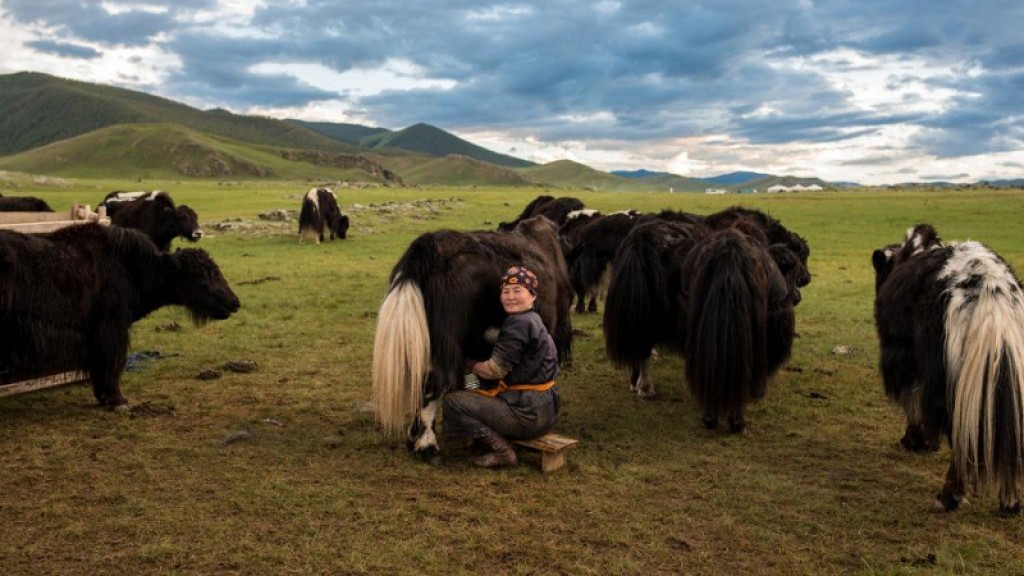Climate-stressed Mongolia urged to put yaks before mines

Ramesh Singh, Mongolia director for Mercy Corps, said strengthening rural livestock markets and establishing centers of economic activity outside the capital would enrich the nation's coffers.
Climate-stressed Mongolia urged to put yaks before mines. Ramesh Singh, Mongolia director for Mercy Corps, said strengthening rural livestock markets and establishing centers of economic activity outside the over-stretched capital would enrich the nation's coffers, provide work for young people, and boost the country's resilience. Mongolia has struggled with an economic crisis since 2016 due to government over-spending and declining revenues from its exports, which include copper and coal. A Mercy Corps report said the mining sector employs only 3.6 percent of Mongolia's total workforce. Meanwhile, around 30 percent of Mongolia's 3 million people live off herding horses, goats, sheep, camels, yaks and other cattle, according to the World Bank, and meat is the primary source of food for the population. Those unable to make ends meet in rural areas - especially young people working in low-paid animal husbandry or unpaid family jobs - usually move to the capital. Climate change could lead to more erratic rainfall and increase the frequency of droughts and dzuds, said the Mercy Corps report. But Singh said a profitable, modern herding system attractive to young people could be developed. Mercy Corps is supporting a law to protect grazing land, and hopes to join planned efforts to map how many animals the country's pastures can support. Its report also recommends educating herders to keep fewer, better-quality livestock, as well as developing financing to protect herders from climate threats, including insurance.
